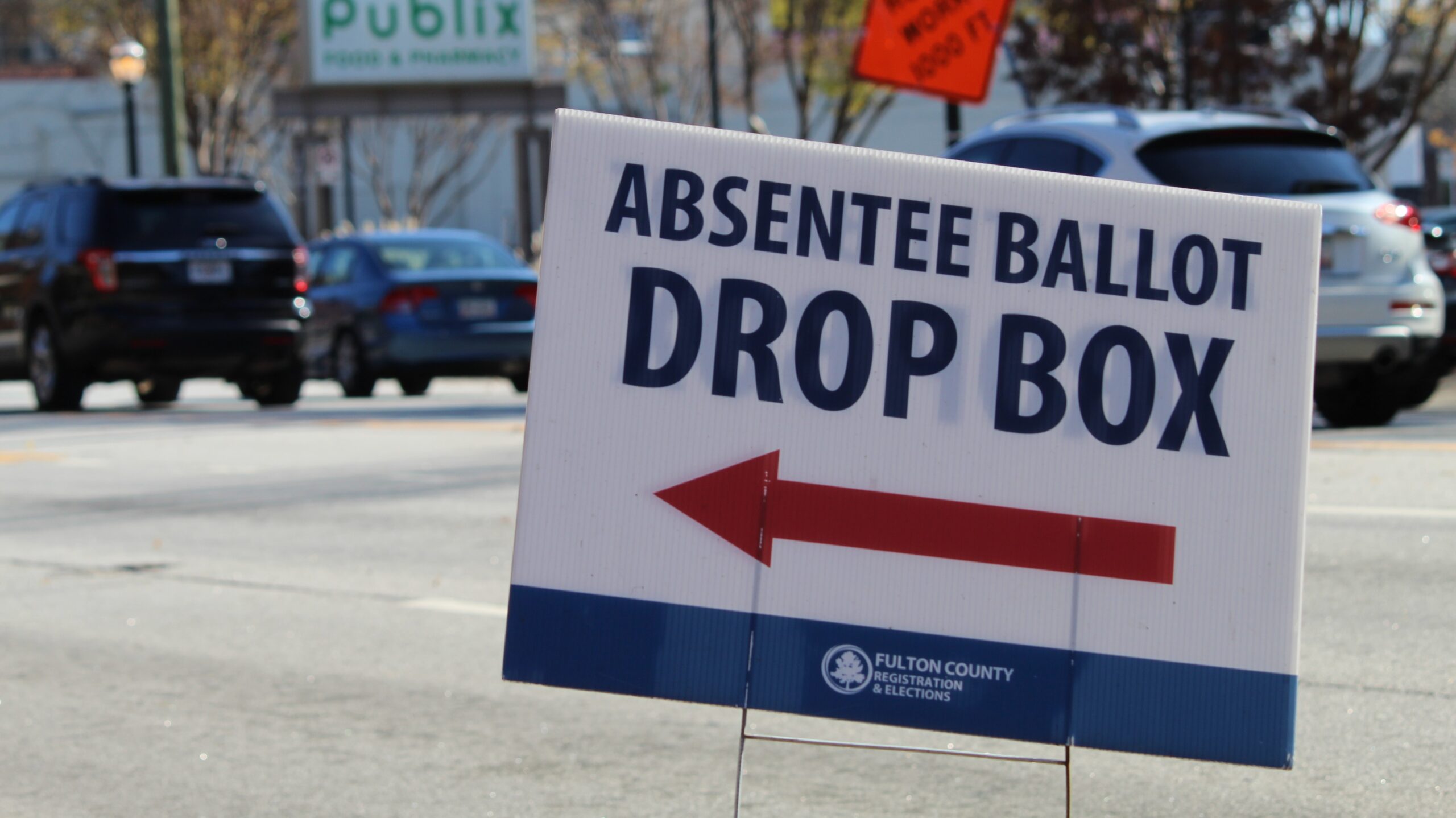Georgia Voters Keep Filling Up Drop Boxes, But Could January Runoffs Be Their Last Hurrah?

More than 7,000 voters used the drop box outside the Ponce de Leon Library to deposit their ballots.
Emil Moffatt / WABE
More than a million absentee ballots have gone out in Georgia for the Jan. 5 U.S. Senate runoff elections, and many voters have used, or are expected to use, absentee ballot drop boxes to return them.
But, it’s unclear whether those drop boxes will be used beyond this election.
Georgia counties deployed the drop boxes for the first time in June when voters cast a record number of absentee ballots amid the coronavirus pandemic.
An emergency rule passed and later extended twice by the state Election Board made the drop boxes possible.
“We made sure they’re under 24/7 video surveillance and on government property,” said Georgia Secretary of State Brad Raffensperger, comparing the drop boxes to mailboxes, which aren’t monitored 24/7. “So that’s actually a better and more secure process, and it will actually get there on time if you drop it in before election time.”
Counties must also empty drop boxes at least every three days and must document a strict chain of custody over the ballots.
Timing became an even bigger issue leading up to the November election as changes at the U.S. Postal Service led to slowdowns in mail delivery.
In Fulton County, more than half of the 146,000 absentee ballots cast in November came in by drop box, including more than 7,000 at the Ponce de Leon Library location.
It wasn’t until the votes were counted and President-elect Joe Biden won, however, that a group of Republican state senators started making unsupported claims of ballot harvesting and calling for drop boxes to be banned.
“As soon as we may constitutionally convene, we will reform our election laws to secure our electoral process by eliminating at-will absentee voting,” the Georgia Senate Republican Caucus wrote in a Dec. 8 e-mail. “We will require photo identification for absentee voting for cause, and we will crack down on ballot harvesting by outlawing drop boxes.”
The emergency rule allowing for drop boxes expires at the end of January. Lawmakers will have to decide whether to give the state Election Board the authority to extend the rule again.
Raffensperger says that decision should be left up to counties.
“They understand the local needs of their voters, and they also respond to their election boards and then it has to be funded by the county commissioners,” said Raffensperger.








